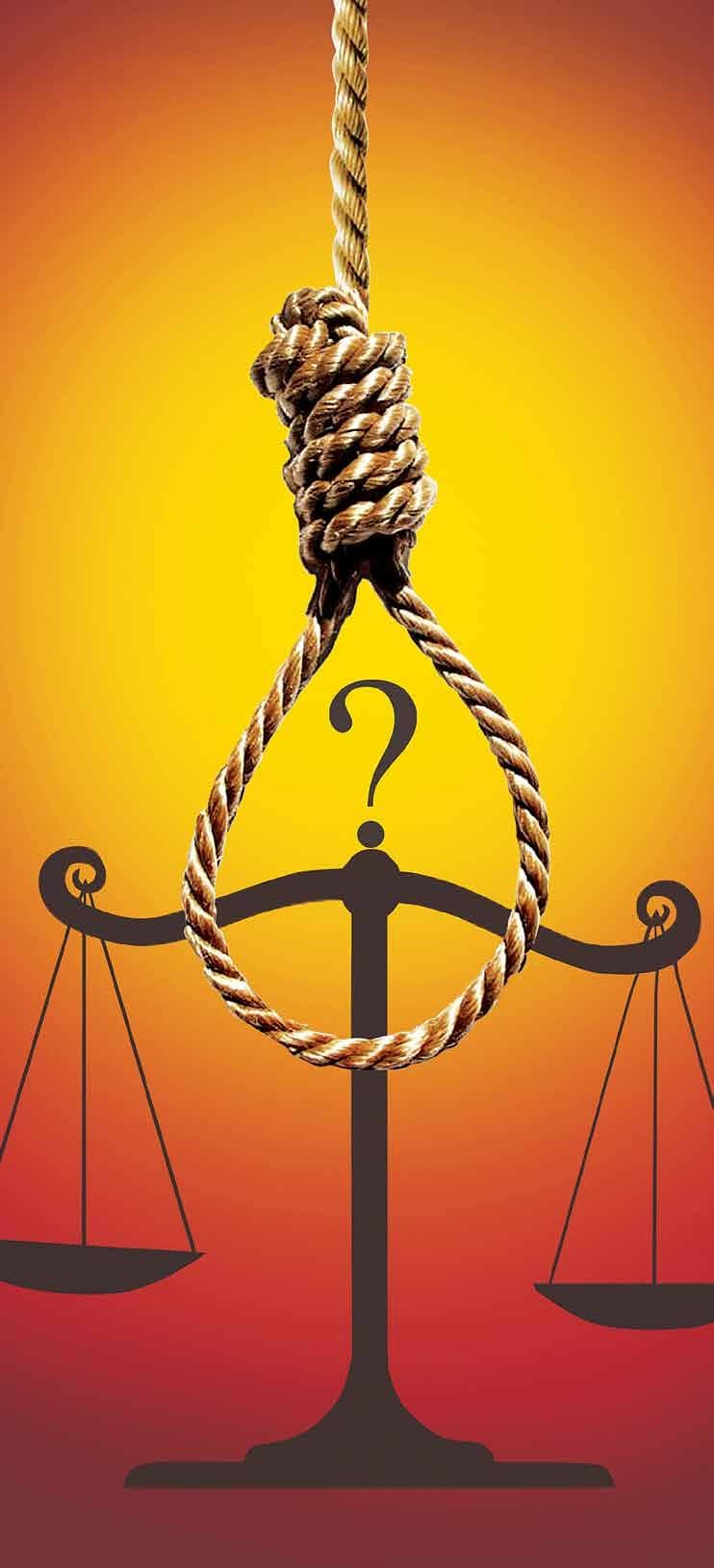
IN 2006, a Supreme Court bench of justices S.B. Sinha and Dalveer Bhandari commuted the death term of Amrit Singh, then 33, who was convicted of rape and murder of a seven-year-old girl three years earlier in a Punjab village. Both the trial court and the high court had held it to be a fit case for death sentence but the top court thought otherwise. “The manner in which the deceased was raped may be brutal, but it could have been a momentary lapse on the part of appellant (convict), seeing a lonely girl at a secluded place,” Justice Sinha had said in the judgment, converting the death sentence to life term.
In 2004, Dhananjoy Chatterjee, 39, was hanged at the Alipore jail in Calcutta for a similar crime— the rape and murder of a minor at her home in 1990. He was a guard of the apartment where the girl lived.“The courts must not only keep in view the rights of the criminal but also the rights of the victim of a crime and society at large while considering the imposition of appropriate punishment,” an SC bench of judges Madan B. Lokur and K.S. Radhakrishnan had said while upholding the death sentence to convict.
The two cases are classic examples of how judges assess the severity of a crime in their own way, often leading to different degrees of punishment for crimes of similar nature. Such drastic variations have been apparent in hun dreds of judgments that the apex court has delivered over a period of time, legal experts say. The argument of “momentary lapse” of reason is often applied to rape and murder cases to lessen the punishment, they add. As a debate rages in the country over the “delay” in hanging four convicts in the 2012 rape and murder of a 22yearold paramedic in Delhi, the spotlight is firmly on the judiciary in view of the flurry of petitions filed by the guilty.
Esta historia es de la edición March 09, 2020 de Outlook.
Comience su prueba gratuita de Magzter GOLD de 7 días para acceder a miles de historias premium seleccionadas y a más de 9,000 revistas y periódicos.
Ya eres suscriptor ? Conectar
Esta historia es de la edición March 09, 2020 de Outlook.
Comience su prueba gratuita de Magzter GOLD de 7 días para acceder a miles de historias premium seleccionadas y a más de 9,000 revistas y periódicos.
Ya eres suscriptor? Conectar

Layers Of Lear
Director Rajat Kapoor and actor Vinay Pathak's ode to Shakespeare is an experience to behold

Loss and Longing
Memories can be painful, but they also make life more meaningful

Suprabhatham Sub Judice
M.S. Subbulakshmi decided the fate of her memorials a long time ago

Fortress of Desire
A performance titled 'A Streetcart Named Desire', featuring Indian and international artists and performers, explored different desires through an unusual act on a full moon night at the Gwalior Fort

Of Hope and Hopelessness
The body appears as light in Payal Kapadia's film

Ruptured Lives
A visit to Bangladesh in 2010 shaped the author's novel, a sensitively sketched tale of migrants' struggles

The Big Book
The Big Book of Odia Literature is a groundbreaking work that provides readers with a comprehensive introduction to the rich and varied literary traditions of Odisha

How to Refuse the Generous Thief
The poet uses all the available arsenal in English to write the most anti-colonial poetry

The Freedom Compartment
#traindiaries is a photo journal shot in the ladies coaches of Mumbai locals. It explores how women engage and familiarise themselves with spaces by building relationships with complete strangers

Love, Up in the Clouds
Manikbabur Megh is an unusual love story about a man falling for a cloud. Amborish Roychoudhury discusses the process of Manikbabu's creation with actor Chandan Sen and director Abhinandan Banerjee